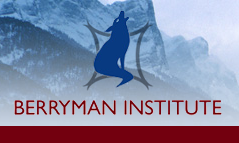Abstract
Human–wildlife conflicts are increasing globally. The increase in conflicts has been attributed to growing human and wildlife populations and a per capita increase in the consumption of natural resources. In Botswana, conflicts between humans and elephants (Loxodonta africana) are increasing. The growing human population (2.2 million) is encroaching on the animals’ already restricted range. Concomitantly, more elephants are adversely affecting arable agriculture production. To better understand the magnitude and intensity of human–wildlife interactions with elephants and other native wildlife species in Botswana, we collected data through community forum conducted July 17–18, 2017 at a “Kgotla” meeting in Mmadinare, a village in the Central District of Botswana. Mmadinare has experienced increased human–wildlife conflicts, mainly related to elephants. The Kgotla is the traditional community meeting place in Botswana villages. The Kgotla provides for freedom of expression, transparent debate, officialdom, and is the official seat for the village leaders. Issues discussed at the Kgotla are highly regarded, and individuals who have discussions do so seriously. Although the forum was our main data collection method, we also used personal anecdotes that communicated participants’ emotional encounters with elephants, their helplessness to deal with elephants, failure of traditional management approaches, and their concerns regarding the lack of government support. The research team members and forum participants who had been impacted most by the wildlife also visited the affected areas. Despite the increasing damage, the community emphasized that harmonious coexistence is desirable and sustainable. One strategy highlighted to lead to harmonious living with elephants was the establishment of a wildlife educational park. The option was attractive because the community expressed strong ownership of the concept. Their perspectives reinforced the gravity and urgency of the situation and the importance of working out intentional strategies to positively direct and manage human–wildlife interactions.
Recommended Citation
Modise, Oitshepile M.; Lekoko, Rebecca Nthogo; Thakadu, Olekae Tsompi; and Mpotokwane, Masego Ayo
(2018)
"Toward Sustainable Conservation and Management of Human-wildlife Interactions in the Mmadinare Region of Botswana: Villagers’ Perceptions on Challenges and Prospects,"
Human–Wildlife Interactions: Vol. 12:
Iss.
2, Article 8.
DOI: https://doi.org/10.26077/qr2b-jg40
Available at:
https://digitalcommons.usu.edu/hwi/vol12/iss2/8



